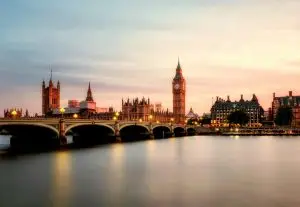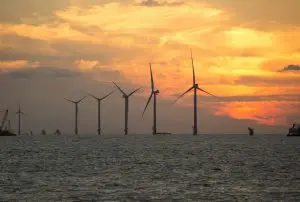Since becoming Prime Minister on 24 July 2019, Boris Johnson has moved quickly to appoint his frontbench and advisers. His picks are enlightening and indicate the Prime Minister has a plan for the months ahead, which could result in a General Election.
Government promotions for prominent Brexiteers show the Prime Minister’s commitment to Brexit
The Prime Minister has repeatedly stated that he will take the UK out of the EU on 31 October 2019, ‘do or die. Come what may,’[1] and his Cabinet picks seem to reflect that intent.
Key members of the Vote Leave campaign from the 2016 EU referendum are now in high office: Dominic Raab, Foreign Secretary and First Secretary of State, and Priti Patel, Home Secretary, hold great offices of state. Andrea Leadsom has become Business Secretary. Theresa Villiers is now Environment Secretary. Jacob Rees-Mogg has been appointed Leader of the House of Commons. Michael Gove has been kept in Cabinet, becoming Chancellor of the Duchy of Lancaster, tasked with leading the UK’s preparations for a no deal Brexit. Dominic Cummings, Vote Leave’s Campaign Director, has also taken up a senior position at No.10 with all Government Special Advisers reportedly reporting to him.[2]
The Prime Minister’s Cabinet Committees also reflect a seriousness about Brexit, with EU Exit Strategy, EU Exit, Economy and Trade and EU Exit Operations forming three of his first six.[3]
No evidence that the current Parliament will endorse the Government’s Brexit plan
Despite the seriousness of the new Prime Minister’s Government about Brexit ‘come what may’ in October, it is currently unclear whether he can persuade Parliament to endorse this approach. Whilst the present Parliament has repeatedly rejected the Withdrawal Agreement and Political Declaration negotiated between the UK and the EU, there is little sign that a majority exists in the Commons’ for leaving the EU without a deal – despite the fact that a no-deal Brexit is the legal default if an agreement is not concluded before 11pm on 31 October 2019.[4]
Parliament has indicated that it will legislate to stop a no-deal Brexit. The European (Withdrawal Act) (No. 5) 2019, initiated by Yvette Cooper MP, ultimately did little more than underpin what the then-Prime Minister, Theresa May, wanted: making it illegal for the Government not to request an extension to avoid no-deal Brexit in April 2019. However, the move signified that there is a will in Parliament to legislate to avoid that outcome. With the assistance of the House of Commons Speaker, it is feasible that Parliament may choose to force the Government to seek an extension to stop the UK from leaving the EU without a deal in October 2019. Or, in the event of the EU rejecting another extension to the article 50 period, Parliament may even attempt to introduce another law that revokes Article 50 and stops Brexit altogether.
To deliver what he promised, the Prime Minister may have to go to the country
It is possible that the Government could try and prorogue Parliament to deliver Brexit by 31 October 2019. This would not necessarily be a straightforward process however. Parliament has already amended a bill applicable to Northern Ireland to try and ensure it is sitting should a no-deal Brexit look a likely scenario.[5] Furthermore, Parliament is already scheduled to sit in September and that would provide willing MPs the opportunity to suspend the standing orders and introduce anti-no deal Brexit legislation.
To deliver the Brexit he has promised, the Prime Minister may therefore be forced to seek a General Election, which he seems mindful of. In his first speech as Prime Minister, Boris Johnson addressed issues, like social care and school funding[6], that many commentators felt harmed the Conservatives during the 2017 General Election. That could indicate that the Prime Minister is aware of how difficult it will be to deliver Brexit by the date he has promised, and that if the current Parliament will not endorse his policy he will look to change it.
Brevia Consulting provides straightforward political advice and support to business and organisations.
Discover how Brevia can help you and your organisation by contacting us on 020 7091 1650 or contact@brevia.co.uk.
[1] Boris Johnson, Boris Johnson – the talkRADIO interview, 25 June 2019, link
[2] Telegraph, 30 July 2019, link
[3] Cabinet Office, List of Cabinet Committees, 29 July 2019, link
[4] European Council, EUCO XT 20013/19, 11 April 2019, pp 4-6, link
[5] BBC News, 18 July 2019, link
[6] Boris Johnson, Boris Johnson’s first speech as Prime Minister, 24 July 2019, link




